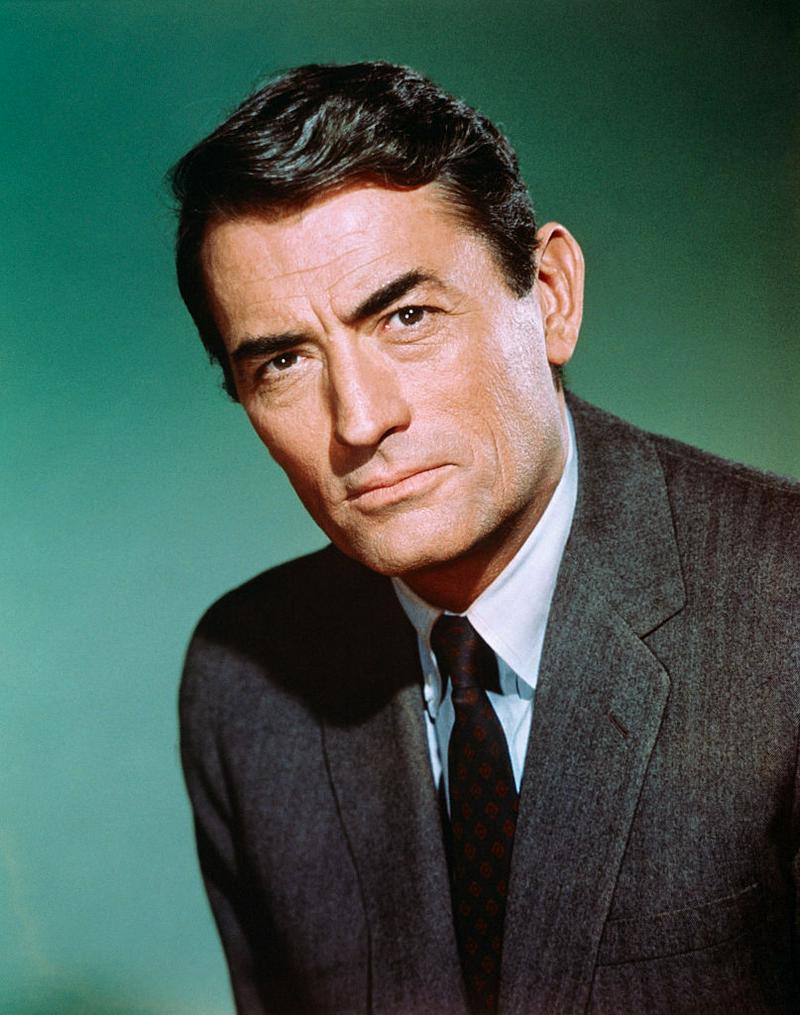The Almost Political Career of Gregory Peck
By Karen Harris | October 31, 2022

As a Hollywood A-lister and one of the top leading men of the 1950s and 1960s, Gregory Peck was a household name in the United States. Thanks in part to his award-winning portrayal of Atticus Finch in the 1962 classic To Kill a Mockingbird, Peck had a reputation for being quietly intelligent, fair, and righteous. Clearly, acting agreed with Peck, but he may have easily followed other career paths that were presented to him, including one that led to Washington D. C.
Gregory Peck’s Early Life
Born in 1916 in California, Gregory Peck spent several of his childhood years living with her maternal grandmother after his parents divorce. When he was ten years old, he enrolled in St. John’s Catholic Military Academy in Los Angeles. Raised a Catholic, Peck considered entering the priesthood as a youngster.
Peck later moved to San Diego to live with his father. After he graduated from San Diego High School, he was accepted into the University of California’s pre-med program with the goal of becoming a doctor. In college, however, he discovered acting. He performed in several school plays and caught the acting bug. He opted to move to New York City to pursue a career in acting, shelving his plans to enter the medical field.
A Star-Studded Acting Career
Gregory Peck cut his teeth in stage performances in New York before moving to films. In just his second movie, The Keys of the Kingdom in 1944, Peck received his first Best Actor Oscar nomination. He followed up this movie with The Valley of Decisions, Spellbound, The Yearling, and Duel in the Sun. His roles in Gentlemen’s Agreement, To Kill a Mockingbird, and Roman Holiday cemented his position as one of the top box-office draws of the era.

Peck’s Political Views
Gregory Peck was a lifelong Democrat and social activist. He lent his voice to several causes. During the height of the Red Scare of the McCarthy era, when most Hollywood celebrities lived in fear of being blacklisted by the House Committee for Un-American Activities, Gregory Peck remained outspoken in his beliefs. He signed a letter addressed to the House Committee that called out the politicians for their witch hunt-like attack on communists in the film industry.
Almost an Ambassador
After the fact, Gregory Peck revealed that he had been in talks with former president Lyndon Johnson. Johnson has told him that he had planned to appoint Peck to the post of U.S. ambassador to Ireland had he run for re-election in 1968. Peck, an Irishman, said he could have happily accepted the appointment, noting, “It would have been a grand adventure.” Johnson did present Peck with a Medal of Freedom. There are those who believe that this honor was a sort of consolation prize since he did not fulfill his offer to make Peck an ambassador when Johnson did not seek re-election.
Almost a Governor
Gregory Peck’s name was batted around as a possible Democratic candidate for California governor in 1970. Peck stated that he had no interest in public office, but had he been named as the candidate by the Democratic Party, he would have campaigned against Ronald Reagan.

An Enemy of Richard Nixon
Gregory Peck spoke out in opposition to the Vietnam War, yet he supported his son, Stephen, who was a soldier serving in the war. He was so outspoken, in fact, that his name landed on President Richard Nixon’s “enemies list”. Nixon worried that Peck’s liberal views coupled with his popularity as an actor, would make him a threat.
One reason why Nixon may have felt this way is that, in 1972, Gregory Peck produced a film version of the stage play, The Trial of the Catonsville Nine by Daniel Berrigan. The plot of this film focuses on a prosecution of a group of Vietnam protestors who were on trial for civil disobedience.
A Campaigner
Despite his political connections, Gregory Peck never ran for public office himself. He did, however, stump for others. He campaigned in support of Democrat Donald W. Stewart during his run for U.S. Senate. He also encouraged one of his sons, Carey Peck, during his two unsuccessful runs for U.S Representative in 1978 and 1980.